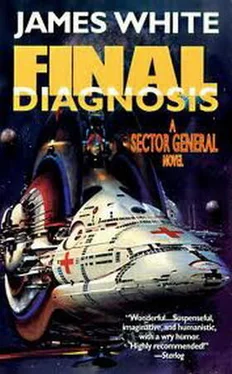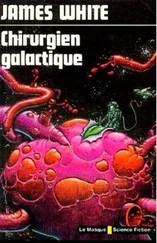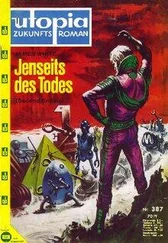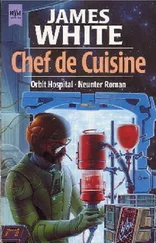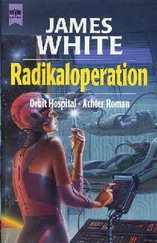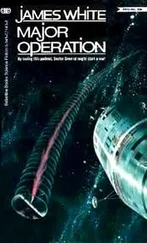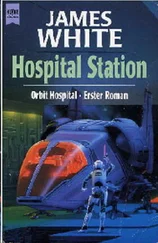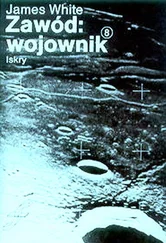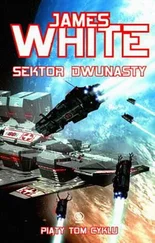“You are forgetting what it has done,” said the other. “On six separate occasions that we know of it has crossed the species barrier. It has done so with ease and without triggering the host’s natural defenses, although later it hyperreacted to any medication or toxic material introduced into the host body. In essence it is a superpathogen, an organized, intelligent collection of viruses which is capable of modifying its structure to adapt and survive within a wide range of temperatures and the physiologies and metabolisms of an as yet unknown number of former hosts…”
“Wait,” said Hewlitt. “Did the medical team on Rhabwar know about this and deliberately keep it from me?”
“Yes,” said the Padre, “as soon as they realized Lonvellin’s personal healer was involved and you were no longer hyperreacting to new medication, but Prilicla didn’t want you to worry.
“On the way back from Etla,” he said, “I remembered Naydrad saying that my troubles were just beginning. I thought it was talking about something else.”
“It wasn’t,” said Lioren, and went on, “potentially an organism that can do all that is very dangerous indeed. It might not intend to harm anyone, but the mechanism that enables it to transfer so easily between species could also serve as a bridge that would allow the transmission of lethal pathogens between the species of its former hosts. If such an adaptable, multispecies strain were to get loose in the hospital it is possible that the virus creature could cure the victims as it has done on previous occasions, provided we could communicate and make our needs known to it. But it is only one individual who would be trying to cure patients one at a time, and if there were a hospital-wide epidemic that would not be fast enough. Sector General and possibly the entire Galactic Federation would be in very serious trouble.
“It would mean the end of our present free and open contact between planetary cultures,” Lioren ended, “and we would be forced back to inhabiting only our own home planets or, if we did go visiting, taking the most stringent decontamination precautions.”
“So that,” said Hewlitt, “is the reason why the evacuation ships have been forbidden to dock.”
This time he was not asking a question.
For a moment Hewlitt felt that his body was so cold that he could have been back in the SNLU ward without his protective suit, and he wondered why the sweat breaking on his forehead was not dropping off as hailstones. All of the Padre’s eyes were turned on him, and he did not know whether its next words were driven by impatience or the need to administer a therapeutic change of subject.
“Try not to think about it now,” it said. “You are about to meet your first Telfl, regrettably one who is dying. There is information you must have and precautions you must take, both for your own safety and to avoid further distressing Patient Cherxic. Listen carefully, if possible without asking questions…
Lioren went on to describe the conditions on Telf, a planet that orbited some thirty million miles from and presented the same face to its parent sun. It was a world whose flora occupied the grey area between vegetable and mineral, a world where the temperature and radiation levels were lethal to every other intelligent species known to the Federation. It was a truly hellish place to all but the Telfl inhabitants.
They were a quasi-animal life-form that had evolved on the dayside hemisphere and required the continuous high levels of heat and hard radiation given off by their sun in order to live. As well as a spoken language they possessed a telepathic faculty which operated between individuals, and especially the members of a family gestalt, who were in physical contact at the time.
Their civilization was very old and well established by the time they achieved space travel, life-support for the Telfl being difficult to reproduce inside a ship, and the proportion of malfunctions and crew losses among them were considered very high when measured by Federation standards. But that had not kept them from traveling between the stars and, eventually, joining and sharing in the commercial and cultural benefits of Federation membership, which included making frequent use of its medical service.
Provided a Telfl ship with space casualties on board could be brought to Sector General quickly enough, it was possible to help them. The problem was that when a Telfi casualty’s radiationabsorption mechanism failed because of a sudden withdrawal or a catastrophic surfeit of its radiant food supply, or a traumatic injury producing the same effect, the hospital had a maximum of one hundred hours from the time the injuries were sustained to initiation of treatment. This included reproducing in the required intensity and duration the cocktail of radiation that would enable the casualty to recover.
The need to reproduce this variety of curative radiation was the only reason why Sector General maintained a small fission reactor, which was little more than a functioning museum piece, among its contemporary fusion equipment. Over the years the hospital had learned how to treat a large number of the nontraumatic conditions as well, the Telfl equivalents of respiratory, intestinal, or gynecological problems, but often it was work for a physicist as much as a physician.
“The patient we are about to visit,” Lioren went on, “is the last and only surviving casualty of three sustained when their ship suffered a malfunction, the nature of which neither of us would understand. Cherxic was part of the specialized gestalt entity responsible for operating the vessel and, since it is no longer a functioning member of its group, the others have closed ranks as best they can and all physical, verbal, and telepathic contact with Patient Cherxic has been severed due to…
“You did say,” Hewlitt broke in, “that this is a civilized species?”
“Yes,” said Lioren. Its eyes and medial hands moved quickly over the seals of his suit, and then it went on, “That’s fine. Leave off one of your gauntlets-and the surgical glove, too, you won’t need them while visiting Cherxic-but double-check your glare shield for yourself while I dress. The visual radiation where we are going is vicious stuff.”
“The suit fabric,” said Hewlitt doubtfully, “seems very thin.”
“The fabric and visor materials are imported from Telf,” said the Padre, “where they were developed for the protection of offplanet visitors. Neither you nor any offspring you may produce need worry.
“If we were carrying virus embryos,” he said, trying to hold his voice steady, “would Prilicla be able to detect them?”
“Yes,” said Lioren, “provided they had developed to the stage of being aware of themselves.”
Hewlitt was still trying to think of a suitable response when it continued, “Patient Cherxic does not want, nor would any other Telfl even consider asking for, the presence of a family member or friend at such a time. Dying slowly while remaining conscious is a very unpleasant experience for any life-form, and for the Telfl who retain their telepathic faculty until the end, it is not one they wish to share with others of their kind. There is severe pain even while the sensorium is closing down, accompanied by fear that cannot be controlled or concealed because a telepath is incapable of controlling either, and for a being used to close physical and mental contact with its fellows from birth, there is a strange and terrible isolation, a loneliness so intense that nontelepaths can scarcely imagine it. And it is only nontelepaths like ourselves who are able to comfort a dying Telfi, by talking to it on the translator, listening to its final thoughts, and allowing it to feel contact with another sentient being for the last time, because it knows that we are feeling sympathy but will not be able to feel its pain.”
Читать дальше
